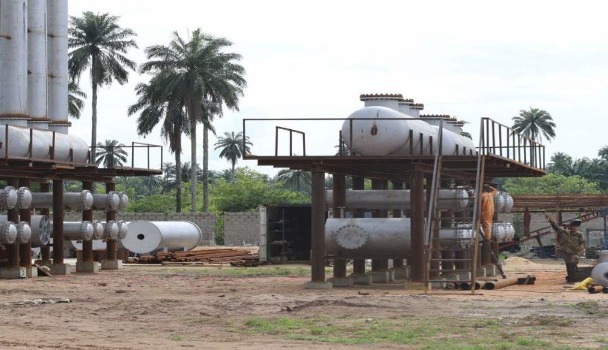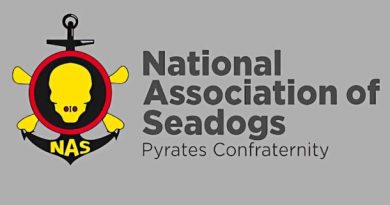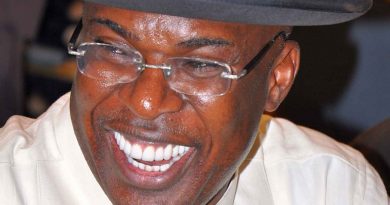Nigeria’s modular refinery owners’ canvass for intervention fund, crude access and naira payment, droping NMDPRA fees
Modular refinery owners in Nigeria are seeking federal government interventions to expand their refining capacity thereby improving supply of premium motor spirit (PMS).
The refinery owners, under the aegis of Crude Oil Refinery-owners Association of Nigeria (CORAN) who met with the minister of state, Petroleum Resources (Oil), in Abuja Friday advocated for the establishment of a Refinery Intervention Fund to assist local refineries expand their capacity from the current 27,000 barrels per day to about 400,000 barrels per day.
Momoh Jimah Oyarekhua, Chairman of CORAN, made their request known during a courtesy visit to the minister in Abuja, also sought the minister’s intervention to boost crude oil supply to members of the association as well as help them reduce fees they pay to the Nigerian Midstream and Downstream Petroleum Regulatory Authority (NMDPRA) for every litre of product they refine in-country.
Oyarekhua said that the modular refineries that are currently producing are starved of crude and even when the crude is available, the local producers want them to pay for it in US dollars.
“We have met with the NUPRC, on the issue, because the matter is captured under the domestic crude oil supply obligation which is clearly stipulated in the PIA. We have intimated them with the production capacity of local refiners and also sought their commitment on domestic crude obligation to all modular refiners.
“We have recently written to them again to ask for another meeting to know where they are on the issue,” he said.
Oyarekhua, who is also the chairman of OPAC Modular Refinery, asked the minister to help them facilitate access to crude oil under the domestic crude obligation as stipulated in the PIA to serve as feedstock for their refineries.
He said that the lack of crude guarantees have held back investors who are considering financing the operations of modular refineries. “Investors see this as a disadvantage and are unwilling to invest,” he stressed.
“Having one gigantic refinery is not a solution today. Creating modular refineries in areas where we have our crude trap today is the solution that Nigeria requires even with the pipeline vandalization, with crude theft and all of that.
“In such clusters, if you have modular refineries that could produce this crude into the local market it would be a good way to help the country to be self-sufficient in the refined products.
He said provisions should be made to increase the number of modular refineries to 40 in the region, with refining capacity of 10,000 barrels per day so that a minimum of about 400, 000 barrels of crude can be refined in the Niger Delta.
And speaking on high fee charges, Oyarekhua said, “As at today, for every litre of AGO or DPK we send into the market, we pay cumulative fees of up to N9.80 which invariably increases the price of that product in the market.
“As refiners, our first interest is to serve the market; however, it is not to make the price of the products unaffordable to Nigerians.
“But when you add these fees to the product, it means that the retail price is further increased for the consumers.
“The PIA did not say that the local crude refinery owners should be the ones to pay these fees, but we have been receiving letters from the NMDPRA, asking that we remit those fees.
He therefore urged the minister to intervene to resolve these lingering challenges as scarcity of foreign exchange in the country hampers importation of PMS, AGO and DPK.
Responding, Lokpobiri promised to look into the various issues raised and find ways to resolve them.
According to him, the government has the responsibility of providing conducive environment for businesses to thrive.
The minister, while encouraging the refinery owners to seek financial support from development finance institutions like the Bank of Industry, Afrexim Bank among others, also promised to engage with relevant agencies concerning the issues.
“We will engage with the relevant stakeholders to ensure more access to crude to the local refineries so that they can refine petroleum products to contribute towards meeting the local demand. We will do whatever we can do as a ministry to resolve these issues, he said.
Oyarekhua confirmed the existence of four operational modular refineries in Nigeria, namely OPAC refinery, Waltersmith refinery, NDPR refinery, and Edo refinery.




